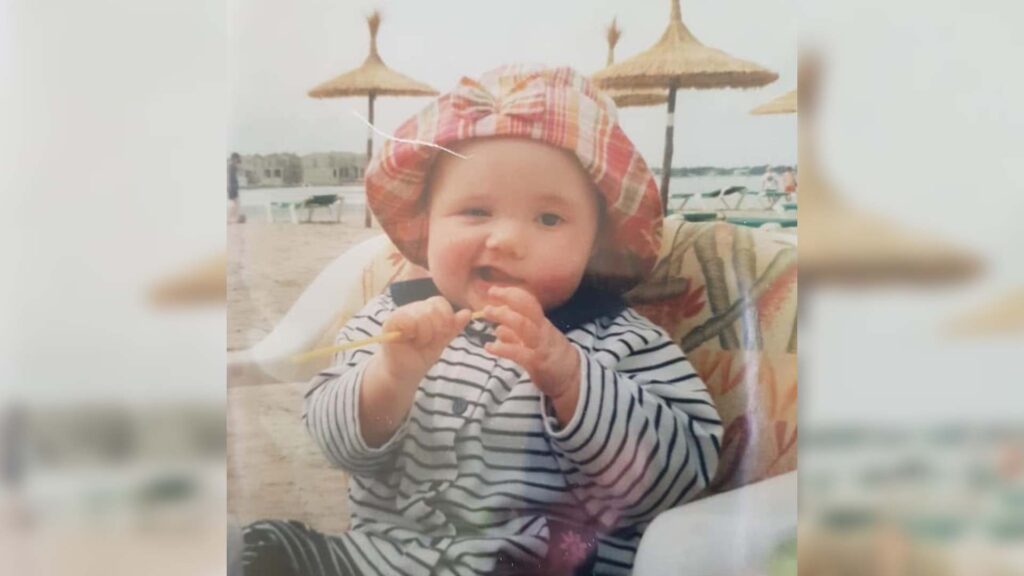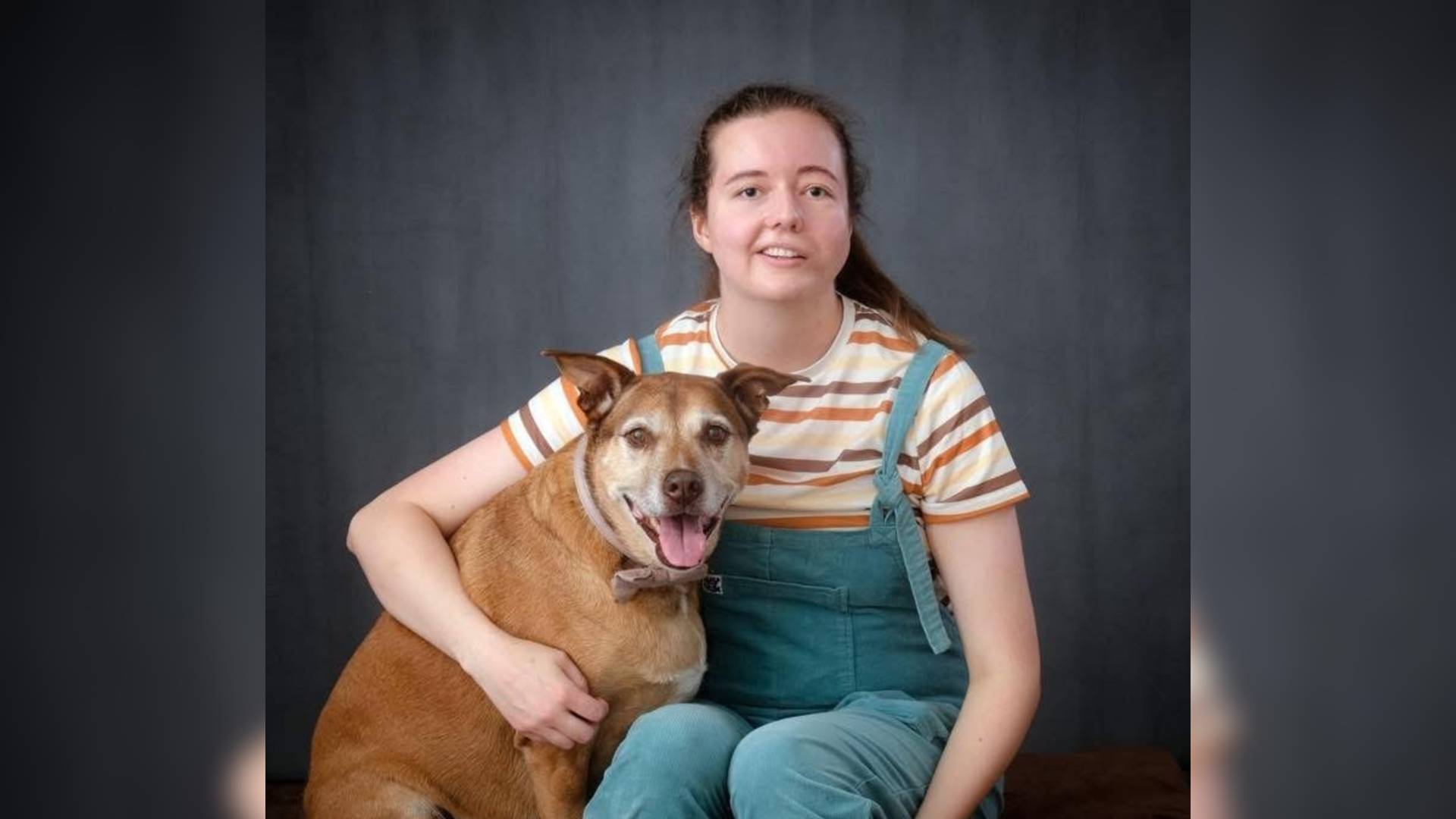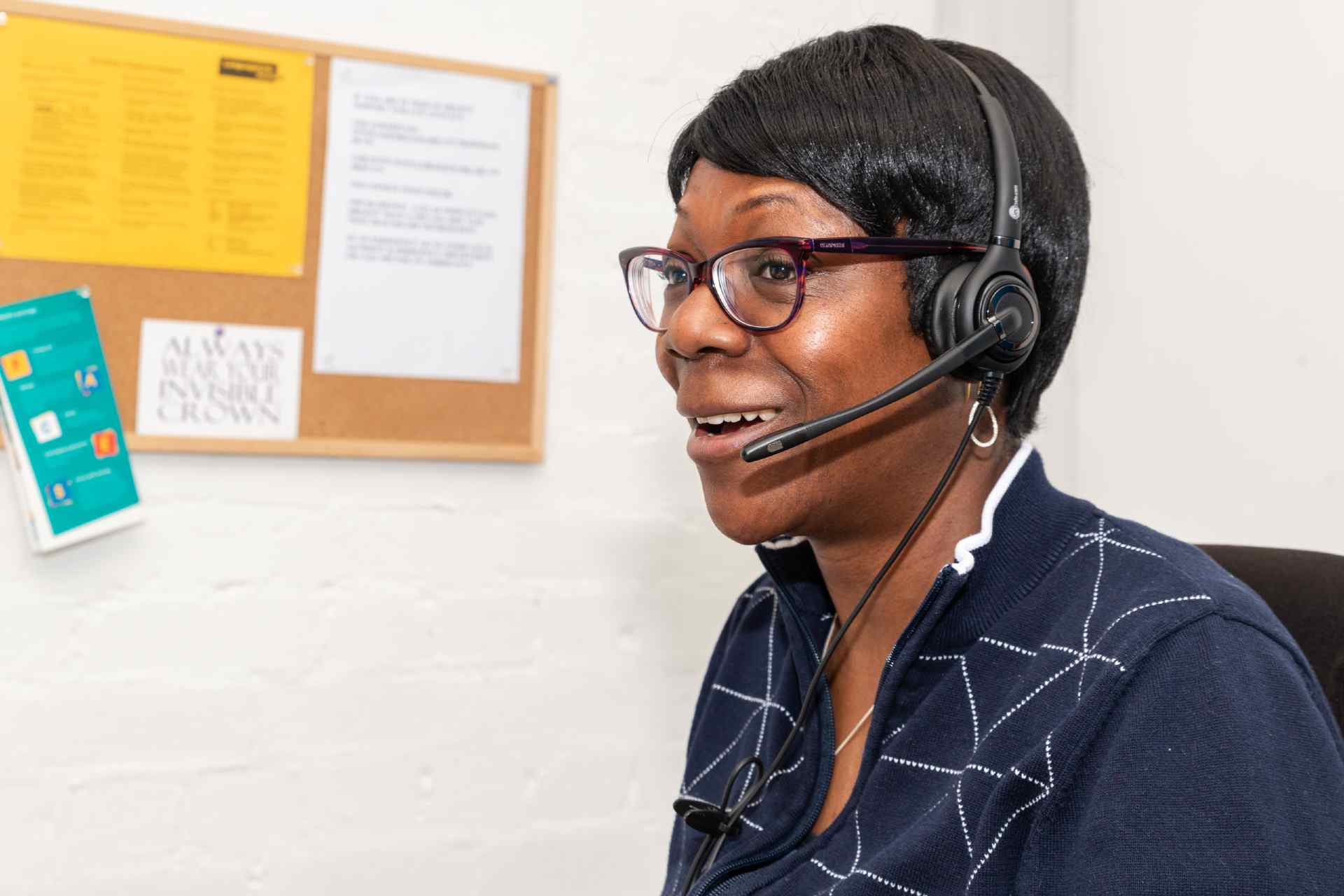I was born with facial palsy, which meant I couldn’t move the left side of my face at all, including closing my eye, raising my eyebrow, or smiling on the left side of my face.
When I was very young, I had two major surgeries where nerves were taken from my leg and armpit and put into my face to help create movement on the left side. It worked, and I can close my eye and move that side of my mouth now. However, I still look noticeably different. My smile is asymmetrical and, even after surgery, I can’t move my left eyebrow.
From those surgeries, I was left with two large scars on my neck, one on my armpit, and several on my leg, which I really struggled with growing up and added to me feeling different. I felt insecure and hated when people pointed them out or asked questions about my scars or the way my face looked.

Chloe was born with facial palsy
Growing up with a visible difference was challenging. I was badly bullied, to the point that I had to move schools. Often, kids would ask me to smile and imitate the way my face looked.
Making friends was hard, because kids would say mean things, so I often stayed quiet, and my confidence took a hit. This impacted my mental health too. Self-image is such a big thing as you grow up, and not feeling good about yourself can be tough.
These problems don’t disappear once you reach adulthood either. Work can be tricky too. When I worked in hospitality, I would often get comments or questions from customers about my face, which was upsetting, especially when I’m just trying to get on with my day.
Meeting new people or being in busy places can make me feel self-conscious. It feels like people are staring, which feeds into my anxiety and reminds me that I’m different.
However, now I have a lovely job with colleagues who are all beautiful human beings and appreciate me for my design talents (I’m a graphic designer). They are so understanding of my mental health struggles and very supportive.
Relationship-wise, I used to think no one could ever love me because of my facial palsy. But now I’m 28 and happily married to the best husband in the world, who sees me for so much more than my facial palsy – and actually loves it (even if I don’t!). I feel very lucky to have him, as well as my supportive parents, family and amazing friends.
I’ve learnt to surround myself with kind, supportive people who love me for who I am and don’t care about my visible difference.
More recently I’ve been diagnosed with anxiety and depression, and I’ve had therapy and started medication to try and get back to a better place. Both are something I wish I’d been able to do earlier. It’s definitely been a journey – a bit of a wild ride, you could say!
Changing Faces’ counselling service has been part of this journey. I had weekly sessions with an amazing practitioner. She helped me work on how to respond when people mention my facial palsy and supported me in challenging my negative thoughts. Most importantly, she encouraged me to be kinder to myself.
I still find things hard sometimes, but working with my practitioner has really helped me to figure out how to respond in different situations. I feel more prepared now than I used to. Having access to mental health support for my facial palsy has been life changing.
Over the years, I’ve learnt to surround myself with kind, supportive people who love me for who I am and don’t care about my visible difference. It’s so important to have people who you know will have your back if someone makes a nasty comment, for example.
It’s okay to have hard days – you’re not going to feel confident all the time, and that’s normal. You don’t have to love your appearance straightaway, but you can learn to accept yourself and your differences.
I hope I can keep building my confidence and embrace the way I look. I also hope my mental health will keep improving – the sessions I’ve had with Changing Faces have definitely been a step in the right direction. In the future, I’d love to see people become more open-minded and less judgemental about visible differences. We should all see others for more than just the way they look.

